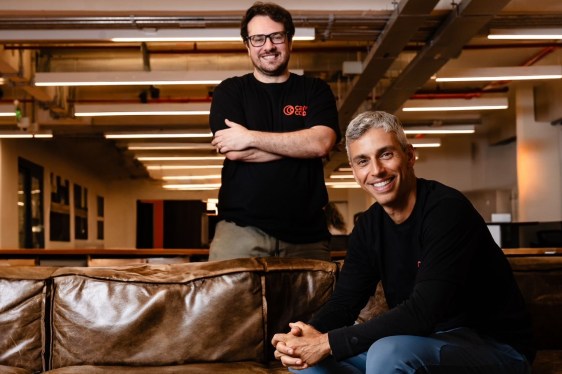
The Medical Side is Just the Beginning
Artificial intelligence (AI) has been making waves in the healthcare industry, with many startups convinced that machine learning-based systems can make a significant impact on tasks such as appointment scheduling and confirmations. One Brazilian startup, Carecode, is among these AI believers, aiming to reduce healthcare costs and improve medical outcomes by developing AI agents that focus on tasks before and after a medical appointment.
From Call Centers to AI Agents
Carecode’s CEO, Thomaz Srougi, has firsthand knowledge of the healthcare industry. Coming from a family of doctors, he founded Dr. Consulta, a private medical service provider scaleup that raised $168 million in funding. Carecode is still early in its fundraising journey but has already secured an impressive $4.3 million pre-seed round, mostly funded by a16z and QED.
A Track Record that Counts
Srougi’s track record and co-founder Pedro Magalhães’ experience as CTO at several startups, including BEES Bank Brasil and Zé Delivery, have helped secure funding for Carecode. "I think that counts a lot for major VCs, especially when the world is upside down," Srougi noted. A16z partner Gabriel Vasquez also played a crucial role in maturing the idea for Carecode and moving it from planning to execution.
Partnerships and Early Results
Carecode is drawing on relationships built during Srougi’s career to find partners that can test its AI agents. Early results with one partner, which cannot be named, look promising. The startup claims that its AI agents can do most of the work of a typical healthcare call center for a fraction of the cost and even go beyond by proactively filling canceled slots while leaving employees to handle complex cases.
Localization is Key
Carecode meets users where they are, usually on WhatsApp, supporting both text and audio messages. This localization approach is crucial in Brazil, where older individuals and low-income individuals prefer sending WhatsApp audio instead of typing. Voice calls are also on the roadmap for Carecode.
A Different Approach to AI
Carecode’s vertical focus sets it apart from U.S. benchmarks such as Sierra, co-founded by Bret Taylor. According to QED partner Camila Vieira Fernandes, this gives Carecode an edge over horizontal approaches that often necessitate multiple solutions with subpar results, negatively impacting customer experience and leaving significant value untapped.
Market Size: A Limitation or Opportunity?
Market size can be a limitation for vertical models, but healthcare in Brazil is not a small niche. According to Srougi, healthcare companies in Brazil spend 50% of their revenue on contact centers and administrative payroll – some $100 billion annually. Carecode’s team believes that going vertical will help build a moat compared to more generalist competitors.
Diversification: A Future Possibility
Carecode may diversify later on, tapping into related sectors such as insurance (life insurance and other types), pharmaceuticals, or medical devices. Srougi noted that the startup’s focus is currently on developing its AI agents for healthcare, but there are opportunities to expand into other areas.
Conclusion
AI holds huge promise for healthcare, and Carecode is one of the startups leading the charge. By focusing on tasks before and after a medical appointment, Carecode aims to reduce healthcare costs and improve medical outcomes. With an impressive pre-seed round and early results with partners, Carecode is certainly worth keeping an eye on.
Related News
- Nvidia’s Project Digits: A Personal AI Supercomputer: Read about Nvidia’s latest project that aims to bring AI to the masses.
- Nvidia Releases Its Own Brand of World Models: Learn about Nvidia’s new world models, which can be used for a variety of applications, including image and video processing.
- Google Forms New Team to Build AI That Can Simulate Physical Worlds: Discover Google’s latest initiative to develop AI that can simulate physical worlds.
Subscribe to TechCrunch
Stay up-to-date with the latest news in AI, healthcare, and other emerging technologies by subscribing to TechCrunch. Choose from a variety of newsletters, including TechCrunch Daily News, TechCrunch AI, and Startups Weekly.








